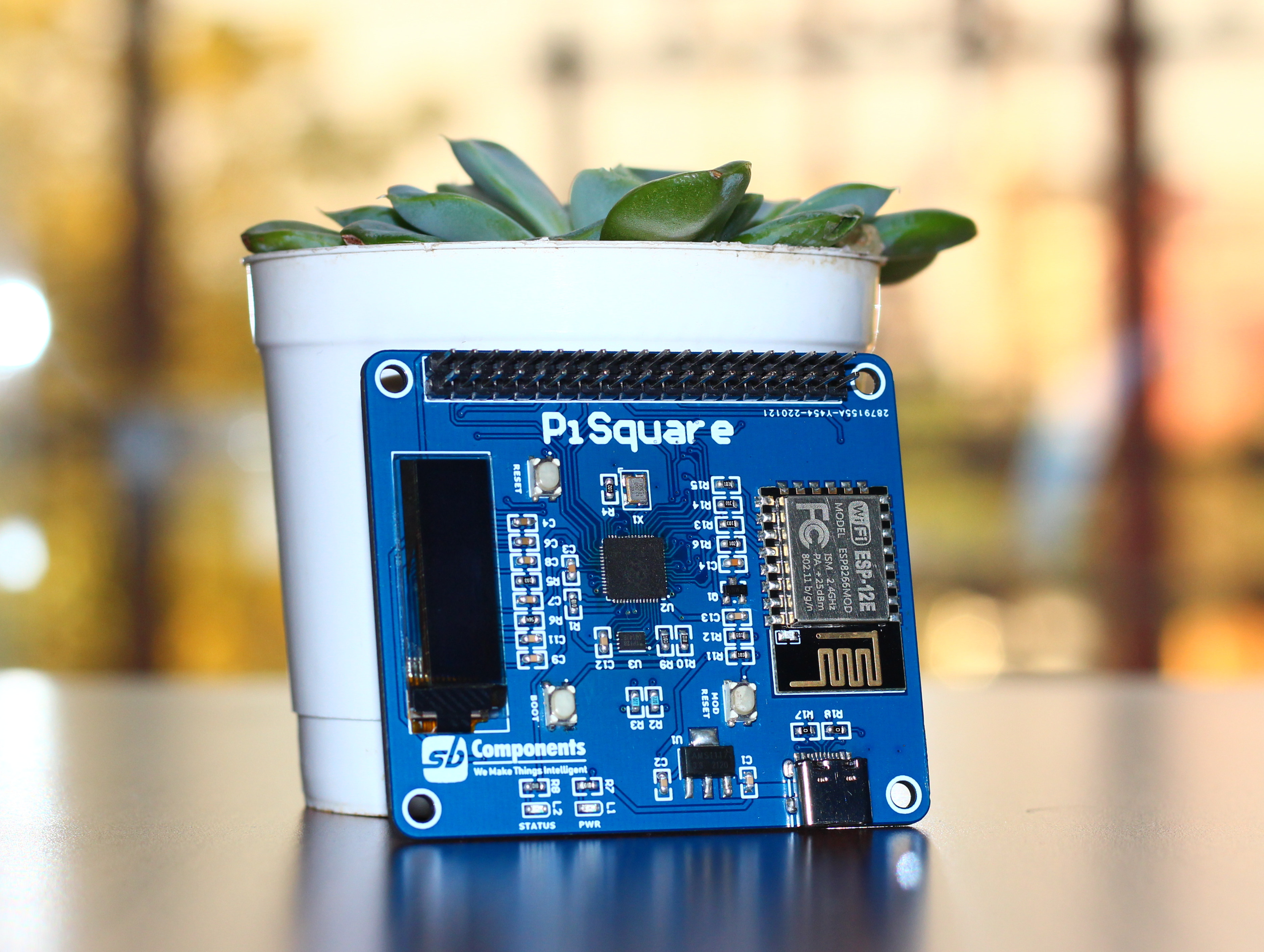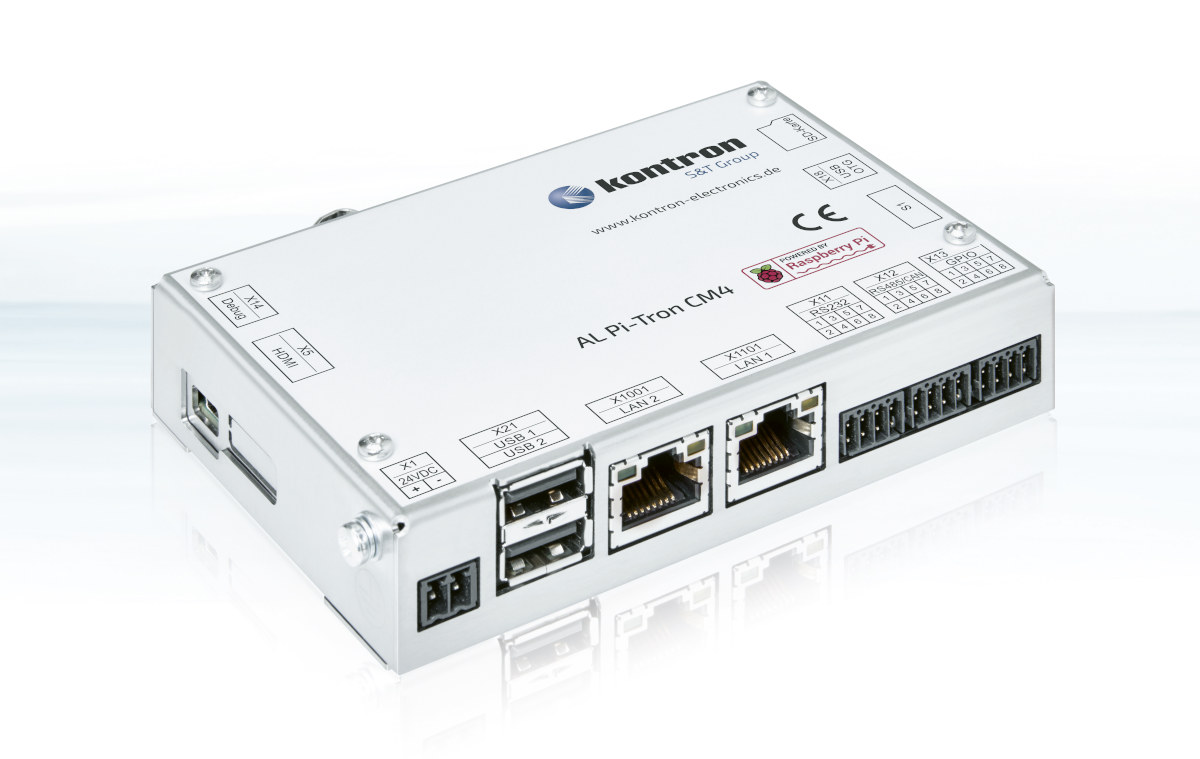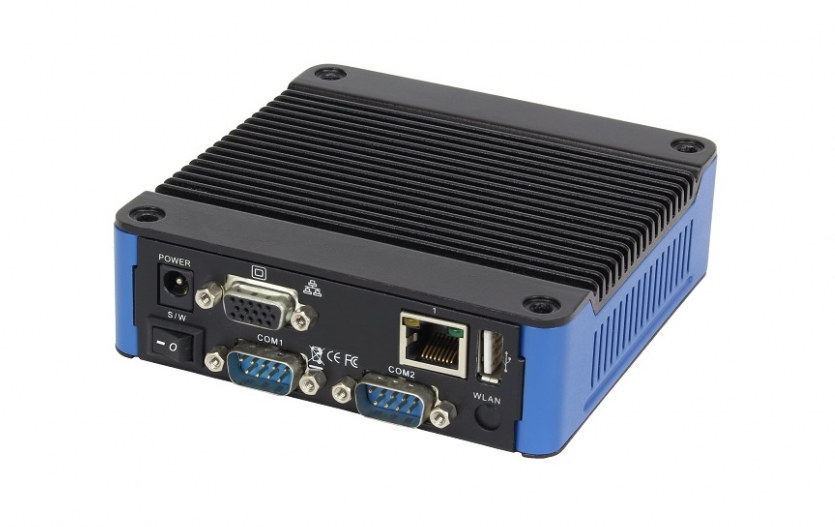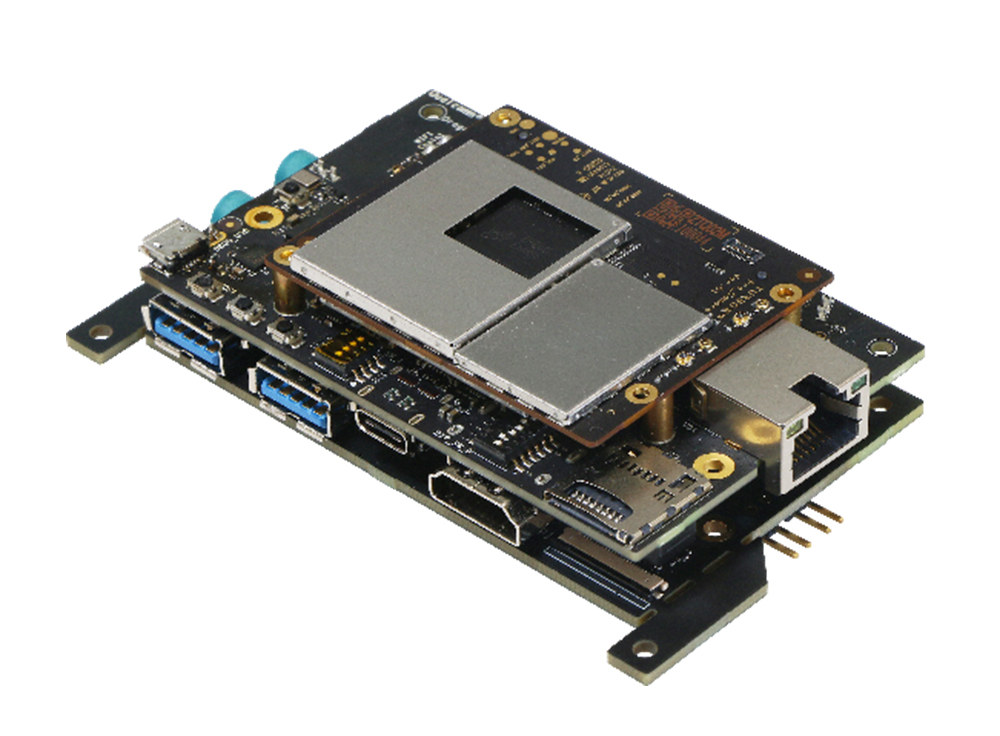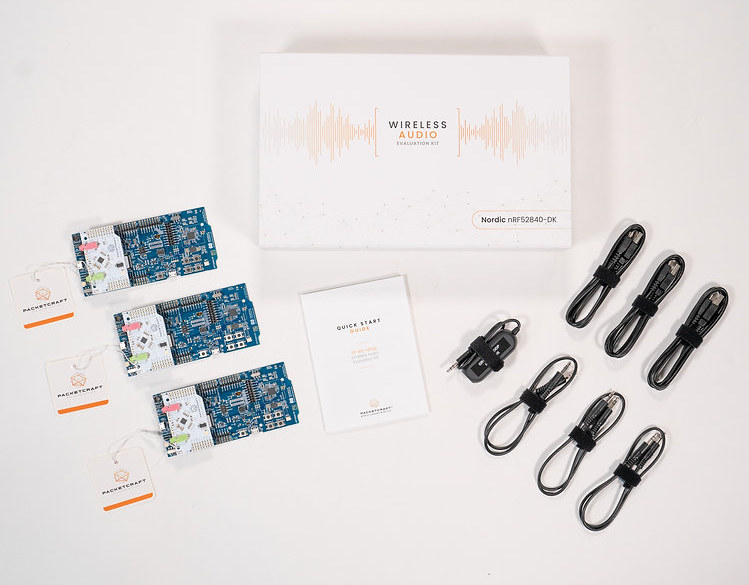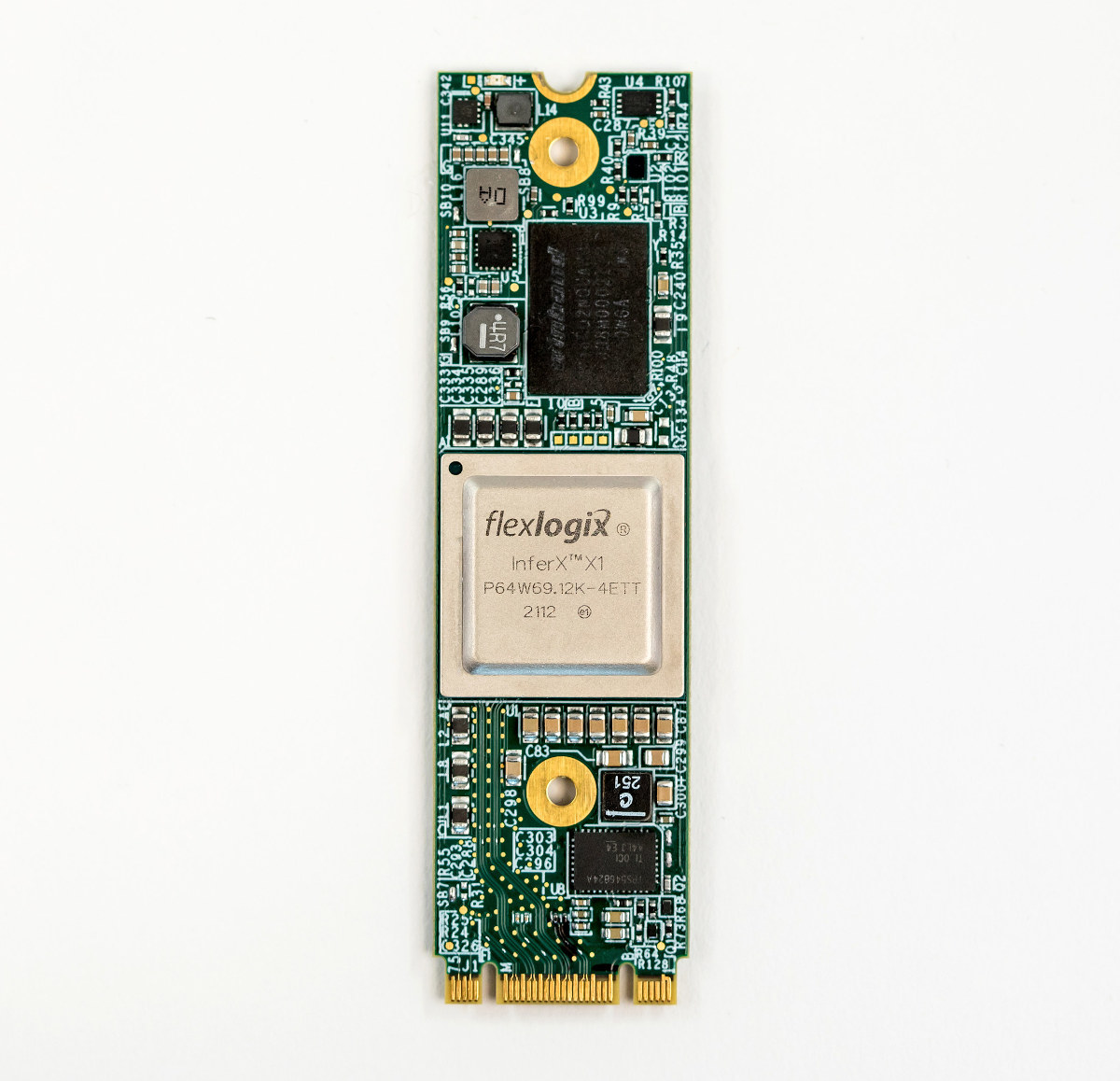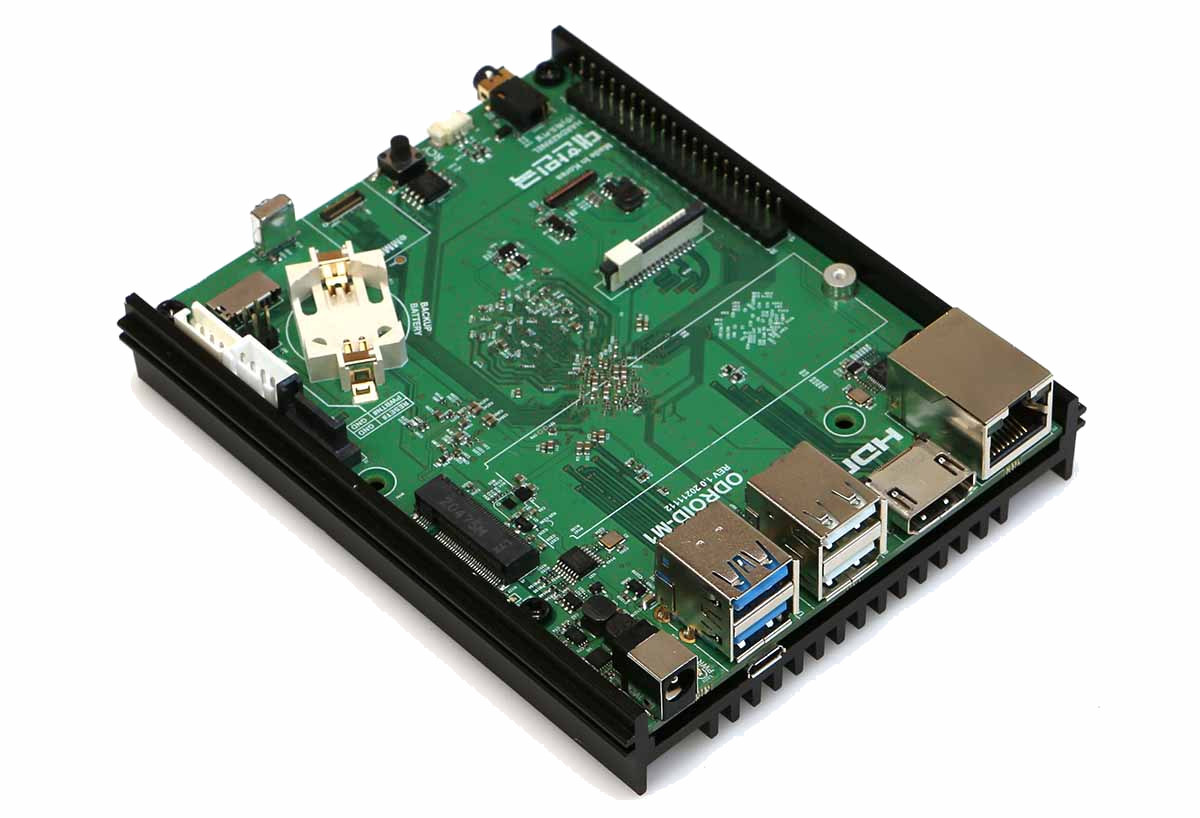SB Components PiSquare is a board following the Raspberry Pi HAT form factor, and based on Raspberry Pi RP2040 microcontroller & ESP-12E Wireless module in order to control multiple Raspberry Pi HATs wirelessly without stacking them on their Raspberry Pi. The PiSquare uses Socket programming to control multiple Raspberry Pi HATs wirelessly, and for instance, you could connect multiple HATs with SPI or UART without the expansion boards conflicting with each other since the physical interface is handled by the Raspberry Pi RP2040 on each PiSquare connected over WiFi (ESP8266) to the Raspberry Pi SBC. PiSquare hardware specifications: MCU – Raspberry Pi RP2040 dual-core Cortex-M0+ microcontroller @ up to 133 MHz Storage – 16Mbit SPI flash Display – 0.91-inch OLED display Connectivity – 802.11b/g/n WiFi 4 via ESP-12 (ESP8266) module USB – 1x USB Type-C port 40-pin header and form factor compatible with the official Raspberry Pi HATs Power Supply […]
How to Install dnsmasq caching DNS server in Ubuntu
As you may have noticed in recent days, my domain registrar (HostFast) suspended cnx-software.com domain for what I believe are dubious reasons, meaning the site was inaccessible to the outside world and myself. I cannot do much about the latter and I’m held hostage to what the domain registrar’s will, but I was able to access my own website with my domain name after installing a DNS server through dnsmasq on my Ubuntu 20.04 laptop. Edit: most of the steps below are actually not needed in Ubuntu 20.04, since you could just edit /etc/hosts (step 4). I’ll just leave the instructions below in case somebody needs to install dnsmasq. Here are the steps I followed. Install dnsmasq
|
1 |
sudo apt install dnsmasq |
This did not work at first since systemd-resolved is already installed, so I disabled it by following instructions on askubuntu:
|
1 2 3 |
sudo systemctl stop systemd-resolved sudo systemctl disable systemd-resolved sudo systemctl mask systemd-resolved |
I then added name servers to /etc/dnsmasq.conf:
|
1 2 |
server=8.8.8.8 server=4.4.4.4 |
and cnx-software.com IP […]
Kontron Pi-Tron CM4 mini PC leverages Raspberry Pi Compute Module 4 for industrial applications
Kontron Pi-Tron CM4 is a single-board computer and mini PC based on the Raspberry Pi Compute Module with a Broadcom BCM2711 quad-core Cortex-A72 processor, up to 8GB RAM, up to 32GB eMMC flash, HDMI video output, two Ethernet ports, optional WiFi and Bluetooth connectivity, and an M.2 slot for AI or wireless expansion. Designed for industrial applications, the Pi-Tron CM4 is also equipped with RS232, RS485/CAN FD bus, and GPIO terminal blocks, supports 24V input voltage, and is optionally sold as AL Pi-Tron CM4 in a housing suited for challenging environments. Kontron Pi-Tron CM4 specifications: SoM – Raspberry Pi Compute Module 4 (CM4) with Broadcom BCM2711 quad-core Cortex-A72 processor @1.5 GHz, VideoCore VI GPU, H.265 (HEVC) up to 4Kp60 decode, 1080p30 encode, up to 8GB LPDDR4, up to 32GB eMMC flash Storage – MicroSD card socket (only for Raspberry Pi CM4 Lite module) Display I/F HDMI 2.0 up to 4Kp60 […]
VESA compatible mini PC is powered by Vortex86DX3 x86 processor
ICOP EB-3362-I fanless mini PC powered by DM&P Vortex86DX3 x86 processor coupled with 2GB DDR3 of memory and designed to be mounted on the back of a VESA compatible display or monitor, a wall, or even a DIN rail through an adapter. The mini PC will be mostly useful for legacy x86 applications with features like VGA video output, multiple DB9 COM ports, as well as SATA storage. The wide 8V to 24V input voltage and -20 to 70C temperature range will also make it suitable for some industrial applications. ICOP EB-3362-I specfications: SoC – DM&P Vortex86DX3 dual-core x86 processor @ 1GHz System Memory – 2GB DDR3 Storage – SATA interface, SD card socket Display Output – VGA up to 1920 x 1080 @ 60 Hz Networking 10/100M Ethernet RJ45 port Optional additional Gigabit Ethernet RJ45 port Optional WiFi via USB 2.0 port, and external antenna USB – 3x USB […]
TurboX C7230 SOM integrates Qualcomm QCS7230 SoC for WiFi 6 & 5G 8K AI cameras
Thundercomm TurboX C7230 SOM is a system-on-module powered by the just-announced Qualcomm QCS7230 hexa-core processor with 7 TOPS of AI performance and designed for WiFi 6 and 5G connected smart cameras with up to 8K resolution. The TurboX C7230 module comes with 8GB LPDDR5 (PoP), 128GB UFS storage, six MIPI CSI camera interfaces, two MIPI DSI display interfaces, as well as a QCA6391 chip for WiFi 6 and Bluetooth 5.1 connectivity, plus optional 5G cellular connectivity through an optional Snapdragon X55 module that connects to the TurboX C7230 development kit. TurboX C7230 SOM system-on-module specifications: SoC – Qualcomm Snapdragon QCS7230 hexa-core processor with 1x Kryo 585 Gold (Cortex-A77) core @ 2.84 GHz, 3x Kryo 585 Gold cores @ 2.4 GHz, and two Kryo 585 Silver (Cortex-A55) cores @ 1.8 GHz, 4 MB L3 cache, Adreno 650 GPU, Adreno 665 VPU, Adreno 995 DPU, Hexagon DSP with dual-HVX, and Spectra 480 […]
Bluetooth LE audio evaluation kit supports nRF52840 Bluetooth Low Energy SoC
Software company Packetcraft has announced the availability of its Bluetooth LE audio evaluation kit for the Nordic Semiconductor nRF52840 Bluetooth Low Energy SoC used to let engineers evaluate the technology and develop Bluetooth LE Audio applications. Bluetooth LE audio was first announced in January 2020 together with the LC3 audio codec, and promised to deliver a much longer battery life for your Bluetooth headphone or battery-operated speaker, as well as support for multi-stream and broadcast audio. But it’s taken some time before being adopted in chips like Qualcomm QCC305x/QCC3056 or FastConnect 7800, as well as operating systems with, for instance, Android 12 being the first version of Android with LE audio support. The kit is comprised of three Nordic Semi nRF52840-DK boards each fitted with a Packetcraft audio interface board (AIB) equipped with two 3.5mm audio jacks for microphone and speaker, plus a ground loop isolator, three 3.5mm audio cables […]
Flex Logix InferX X1M M.2 AI accelerator module is now in production
When we first wrote about Flex Logix InferX X1 AI inference accelerator in 2020, the InfexX X1M M.2 AI accelerator module for edge servers, PCs, laptops, and embedded systems. was expected in Q2 2021. It took longer than planned but the company has finally announced production availability of the InferX X1M board in M.2 2280 form factor, or about the size of a stick of gum, to fit into power-constrained applications such as robotic vision, industrial, security, and retail analytics. InferX X1M module specifications: InferX X1 Edge Inference Accelerator with 4K MACs with 8 MB of distributed SRAM, and an eFPGA with 4MB DDR3 RAM System Memory – LPDDR4X (capacity undisclosed) Interface – M.2 B+M Key edge connector with x4 PCIe GEN3/4 Dimensions – 22mm x 80mm Power Budget – 6 to 8.2W TDP Flex Logix does not provide a lot of information on the product page, and instead, it’s […]
Hardkernel launches ODROID-M1 Rockchip RK3568B2 SBC
It’s been a while since we have seen new hardware from Hardkernel, but the Korean company has just launched the ODROID-M1 SBC powered by Rockchip RK3568 with up to 8GB RAM. The single board computer is cooled with a large heatsink placed underneath, supports SATA and NVMe storage, offers HDMI and MIPI DSI video output, Gigabit Ethernet networking, as well as two USB 3.0, two USB 2.0 ports, an RTC backup battery, and a 40-pin GPIO header. ODROID-M1 specifications: SoC – Rockchip RK3568B2 quad-core Cortex-A55 processor @ up to 2.0 GHz with Arm Mali-G52 MP2 GPU, 0.8 TOPS AI accelerator System Memory – 4GB or 8GB LPDDR4 RAM Storage 16MB SPI flash preinstalled with Petitboot MicroSD card socket eMMC module socket Native SATA 3.0 port + SATA power (5V only) tested up to around 500 MB/s M.2 NVMe M-Key socket (2-lane PCIe 3.0) for M.2 SSDs tested up to around […]


